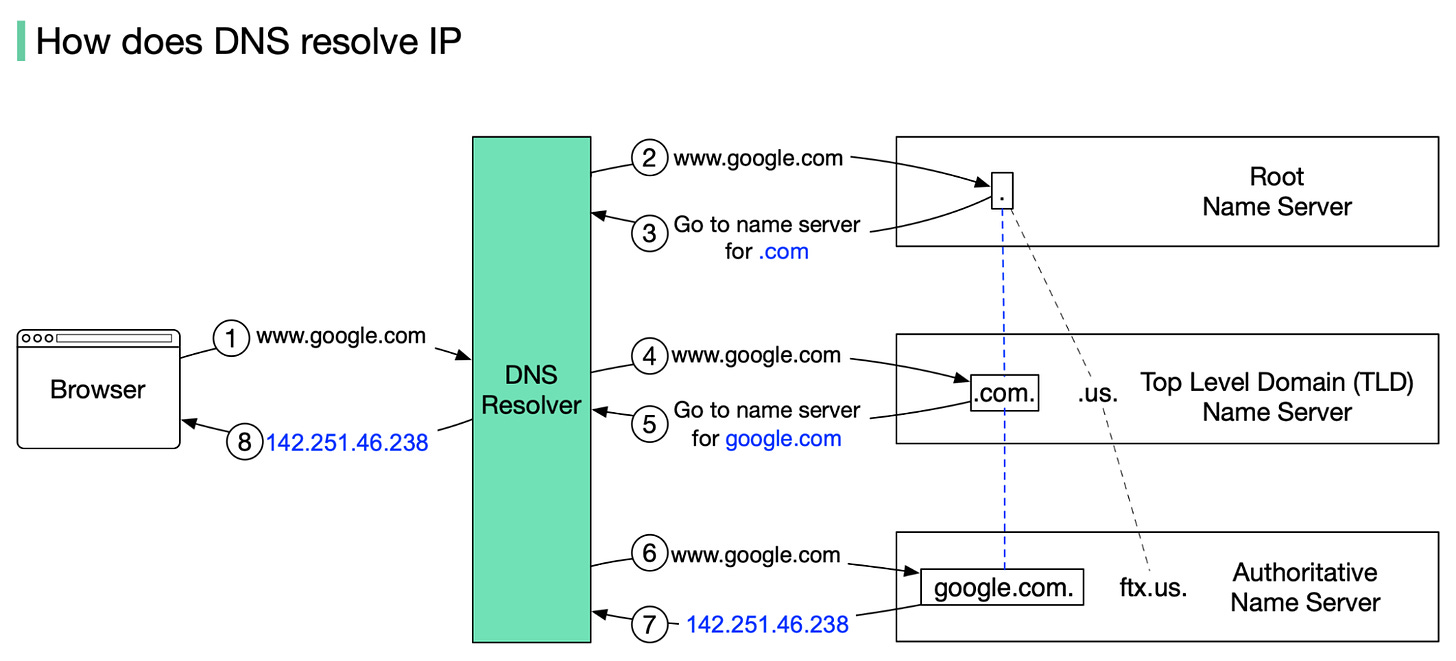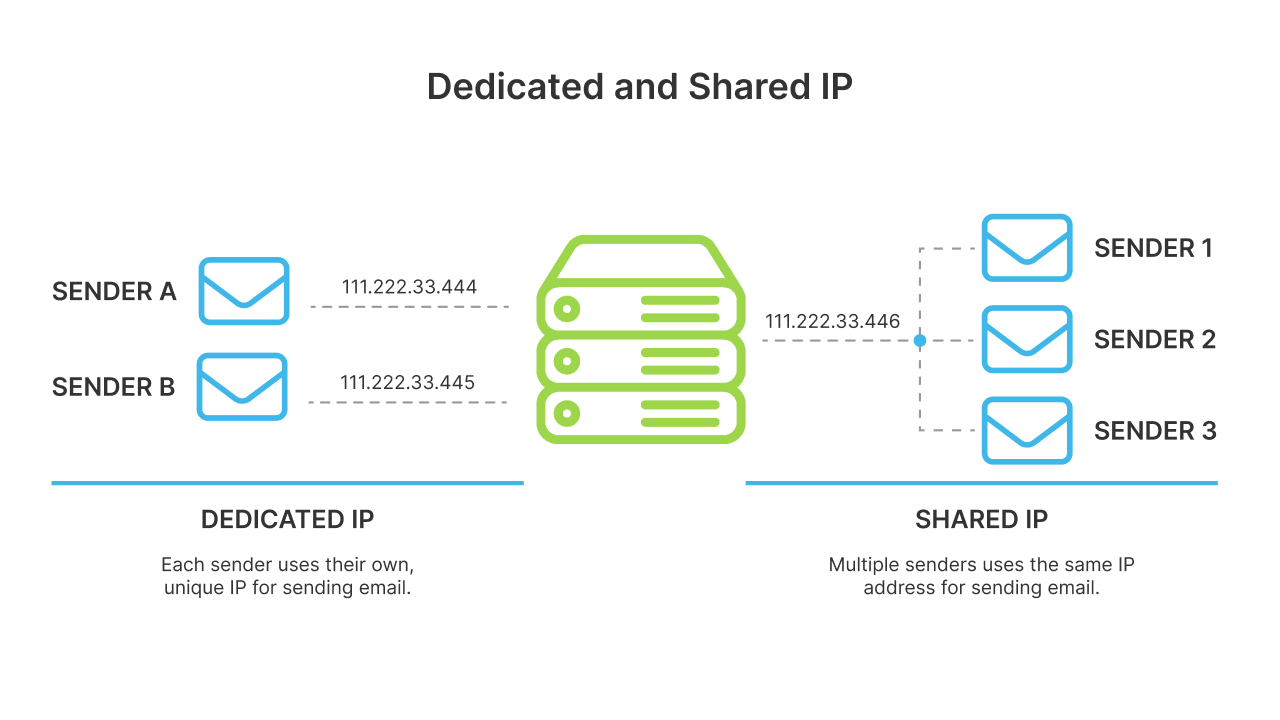Dedicated IP addresses play a critical role in enhancing online security, website performance, and overall user experience. Businesses, especially those handling large volumes of emails or running online services, often rely on dedicated IP addresses to ensure smooth operations and secure access. But what exactly is a dedicated IP and how does it differ from other types of IP addresses?
In this knowledge base article for DotsDen, we'll explore the concept of a dedicated IP address, how it works, and its numerous benefits for businesses and individual users.
What is an IP Address?
An IP (Internet Protocol) address is a unique identifier assigned to each device that connects to the Internet. Think of it as a digital address that allows data to find its way to the right destination. Every device connected to the internet, including servers, computers, and smartphones, has an IP address, which helps to manage and route traffic efficiently across the web.
There are different types of IP addresses, such as dynamic IP addresses that change over time and static IP addresses that remain fixed. A dedicated IP falls under the category of static IP addresses, providing more control and reliability.
How Do IP Addresses and DNS Work?
IP addresses function in a team with the Domain Name System (DNS), which translates human-readable domain names (like "dotsden.com") into machine-readable IP addresses. When you enter a domain name in the address bar of your browser, the DNS resolves it to the correct IP address, allowing your browser to access the website.
Without this system, we would have to remember lengthy strings of numbers to visit websites, which would make online navigation far more complex.

How Does a Dedicated IP Address Work?
A dedicated IP address is an IP address assigned exclusively to a single website or user. Unlike shared IP addresses, which are used by multiple websites or users on the same server, a dedicated IP is assigned to just one entity. This exclusivity offers various advantages, including improved performance, security, and email deliverability.
For instance, a dedicated IP can be beneficial for businesses running their mail servers. With a dedicated IP, there are fewer chances of getting blacklisted due to spammy behaviour by other users sharing the same IP.
Different Types of IP Addresses
There are several types of IP addresses, each serving a different purpose. Let's look at the key categories:
-
Consumer IP Address
This type is generally assigned to individual devices or home networks. It can be either dynamic or static, depending on the internet service provider (ISP). Home users mostly get dynamic IP addresses, which change periodically.
-
Website IP Address
Websites are also assigned IP addresses. This can either be a shared IP address (used by multiple websites on the same server) or a dedicated IP address (exclusively used by a single website).
-
Dedicated IP vs. Shared IP
Shared IP addresses are used by several websites, which is common in shared hosting environments. It’s a cost-effective solution but can have drawbacks like security issues and email sender reputation problems.
A dedicated IP offers more control, allowing you to run services like private email servers and VPN services with fewer security concerns.

Key Benefits of a Dedicated IP Address
A dedicated IP address offers numerous advantages, especially for businesses that prioritize online security, email deliverability, and website performance. Below are some of the most significant benefits:
1. Enhanced Security and Customization
With a dedicated IP, you have control over server configurations and Customizable DNS Settings, which enhances the security of your site or service. It provides secure access to your Private Server and helps protect against hacking attempts and unauthorized access.
2. Improved Email Deliverability
For businesses that rely on email marketing or send large volumes of emails, having a dedicated IP ensures a better email sender reputation. Since you're not sharing the IP with others, there’s less risk of landing in spam folders or facing blacklist issues. This also means fewer chances of delivery issues when sending critical business emails.
- Better Performance for Websites and Servers
A dedicated IP allows direct access to your server, improving website performance. It’s particularly useful for VPN users, FTP servers, and gaming servers where latency can affect the user experience. Sites with high traffic loads can also benefit from a dedicated IP, leading to faster page loading times.
4. SSL Certificates and Secure Connections
When you're running an eCommerce site or any service requiring secure transactions, a dedicated IP address is essential. It enables easy installation of SSL certificates, ensuring that your site uses HTTPS for secure connections. This adds a layer of security, especially for businesses that process online payments or store sensitive customer information.
How to Check if You Have a Dedicated IP?
You can easily check whether your hosting plan includes a dedicated IP address by logging into your hosting provider’s dashboard. Services like DotsDen offer Cloud Dedicated Servers with dedicated IPs, providing you with exclusive ownership of the IP. Alternatively, you can use online tools to look up the IP address associated with your domain name to see if it’s unique to your website.
How to Obtain a Dedicated IP?
Many hosting providers, including DotsDen, offer dedicated IP addresses as part of their hosting packages. It's often available as an add-on feature or included with certain hosting plans, particularly for business websites or high-traffic applications. For VPN services, a dedicated IP can be requested through your VPN service provider to enhance secure access for remote employees or to avoid annoying CAPTCHA requests on frequently visited websites.
Advantages for Remote Workers and Businesses
In today’s flexible work environment, remote access is crucial. A dedicated IP enables businesses to provide secure connections for remote employees accessing business servers or sensitive data from off-site locations. This ensures that only authorized users can access critical resources, improving both security and productivity.
Additionally, VPN services benefit from dedicated IPs, allowing remote workers to securely connect to internal networks without sharing IPs with bad actors or other users on public Wi-Fi.

